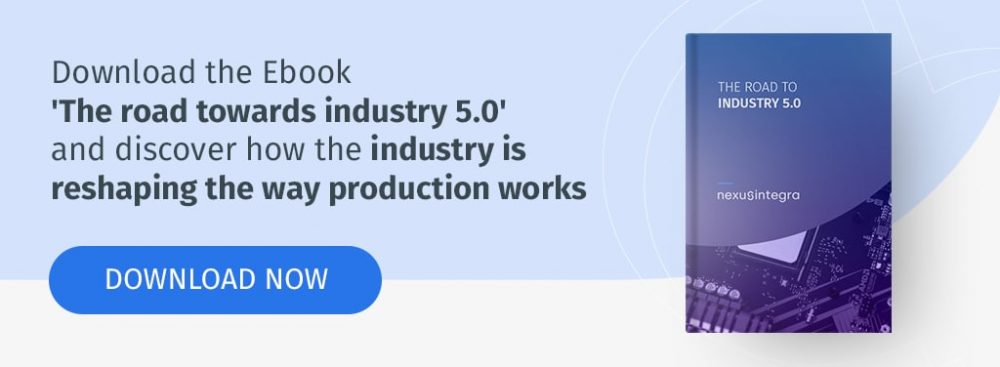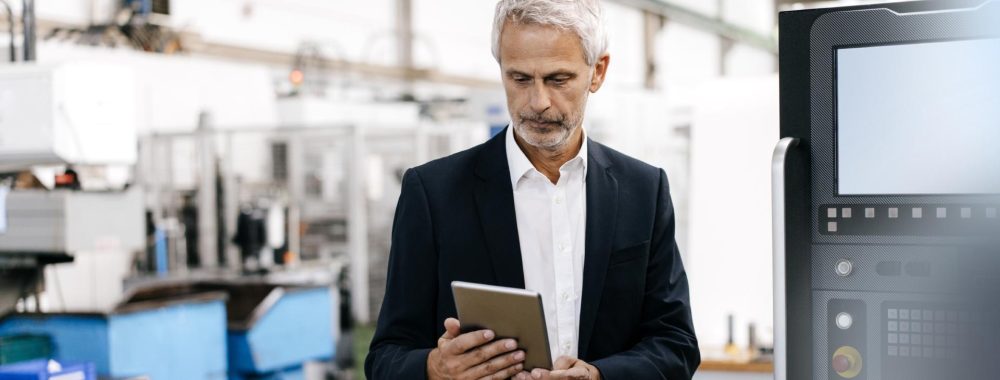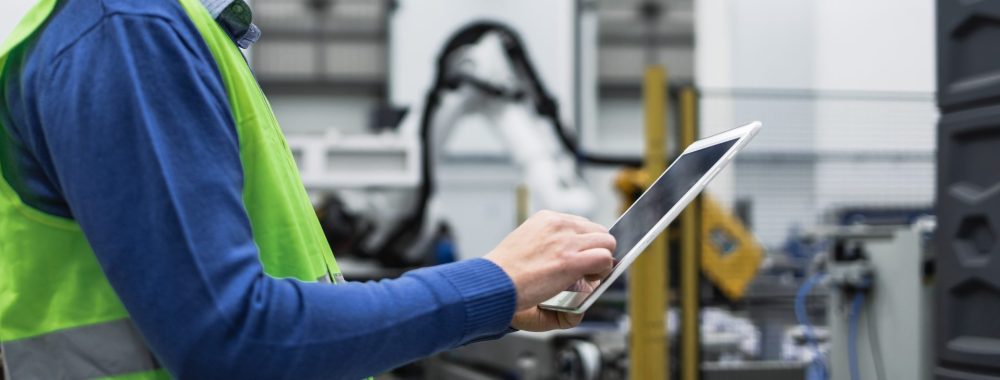The search for efficiency has become a long-distance race for all companies that want to be part of Industry 4.0. The constant search and desire to obtain this competitive advantage is driving thousands of companies to delegate numerous activities and processes to machines, software and intelligent platforms.
This new scenario establishes a reality in which machines learn from humans, becoming an increasingly fundamental part of any business. Through the RPA or automatic robotisation of processes, an optimisation is carried out that has drastically revolutionised the industrial sector.
What is the role of Artificial Intelligence in this context? In this article, we tell you about its functions, applications and what the Nexus Integra platform can do in this type of automation.
What is Robotic Process Automation or RPA?
RPA, or automatic robotisation of processes, is the automation of certain processes based on software that automatically processes repetitive tasks or, normally, tasks based on simple rules to execute.
This type of software uses logical rules and adapts easily to the processes of each company, imitating human beings who would execute tasks such as file management, creation of forms and accounts, data storage, etc.
RPA components
In order for RPAs to perform their tasks normally, they need a number of parts or components:
- A bot. This software will be able to execute recurring tasks. It is configured through simple programming or by “imitating” the actions of a user such as copy and paste, consulting databases, etc.
- An RPA needs to be installed on a computer or any other type of virtual support. This flexibility allows for significant hardware cost savings.
- Most RPA platforms have several plugins and extensions to facilitate the development and execution of their tasks. These take care of different activities such as manipulating dates, extracting data or managing certain tasks.
- In addition, an RPA must have software that is compatible with all the platforms to which it will have access. Normally, the RPA will have the same access to the system as a standard user.
Thanks to these components, the RPA system will be able to carry out many of the tasks previously performed by humans, relieving them of this workload and allowing them to perform more important tasks.
What processes can be automated with an RPA?
An RPA is made to increase the efficiency of the company and prevent workers from performing routine tasks. RPA platforms can be applied to 3 types of processes:
- Specific processes. These are usually part of more general jobs with wider functions. This means that these tasks are more simple, repetitive and very easy to execute. These tasks may be based on uploading information to a server or managing simple worksheets.
- Multi-functional processes. To execute this type of tasks, the RPA System will take care of different functions, coordinating multiple bots to perform common activities. Normally, this type of process is made up of other sub-processes that complement each other to execute the same task.
- End-to-end processes. RPAs also take care of complete processes: from, for example, production control to the distribution of parts and their arrival at each supplier.
Advantages of using an RPA in your company
These are some of the advantages of automating processes through an RPA:
- Efficiency. By eliminating human error, processes are optimised and productivity is increased, thanks to the reduction of operational risk.
- Simplicity. One of the main advantages of this system is the simplicity with which a user can train and implement a bot. These solutions have a lower risk and a very high potential return on investment.
- Competitive advantage. Applying this type of automation systems will help to boost your company and differentiate it from the rest of your competitors.
- Scalability. RPA enables high-volume production processes to be more flexible and adaptable to changing environments.
- Cost savings. RPA works around the clock 24 hours a day, 365 days a year, which means significant cost savings.
How to achieve high availability in modern control systems
How do RPA and Artificial Intelligence relate to each other?
At first glance, RPAs may resemble AI. However, most bots do not have one of the most important characteristics of AI: the ability to constantly learn and improve.
Typically, RPA bots are designed to execute a series of repetitive tasks, based on very strict rules and norms. For the bot to modify its behaviour, some aspects of the automated task would have to be changed, but it would never do it on its own.
However, there are already cases where AI and RPA complement each other to boost a company’s effectiveness and productivity. In this case, the work of RPAs is combined with the advanced decision making of Artificial Intelligence. By combining both disciplines, the possibilities for effective automation are greatly increased, allowing companies to automate more complex end-to-end processes and apply highly advanced predictive models.
Automate and optimise your company’s processes with Nexus Integra
The RPA robotisation market is growing, thanks to the numerous advantages of its implementation in any sector. With Nexus Integra you can work with robotic automation of processes with the added value of Artificial Intelligence and Machine Learning technology.
Nexus Integra is the integrated operations platform that allows you to monitor and manage your company’s production processes in real time, obtaining a single operations framework with a 360º vision of your business.
Contact our specialised team to obtain a study adapted to the needs of your business.


